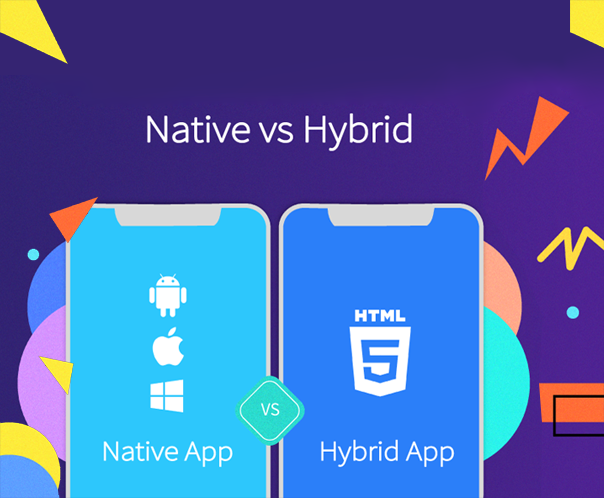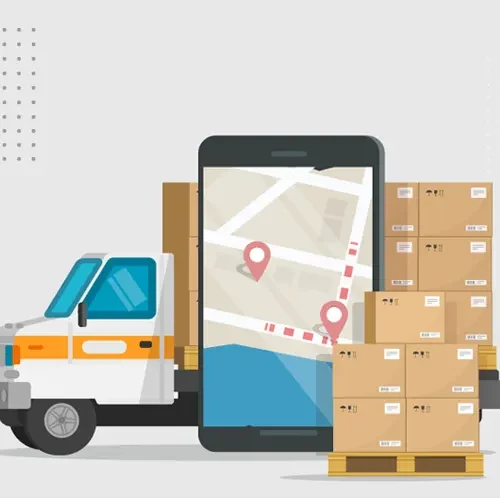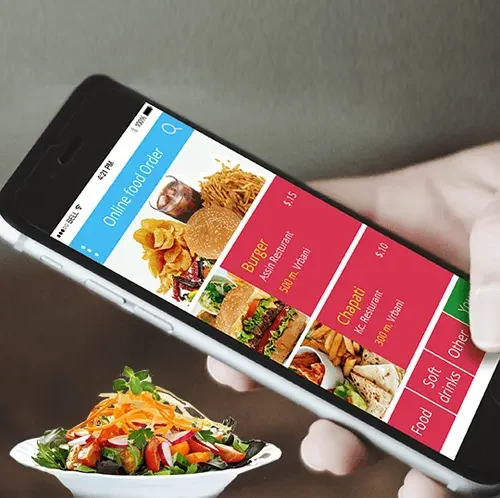A mobile app is built for the operating system and typically runs across mobile devices called mobile apps. On the other hand, it is harder to develop, so there are fewer chances of errors and higher functionalities.
Mobile applications have become essential business tools that are highly dynamic. They are now the norm for connecting with customers for various daily needs, such as medical, banking, grocery shopping, health & entertainment, food delivery apps, and more.
Mobile apps offer users the convenience and speedy experience they desire, and businesses have come to rely on them more than ever before. As a result, the mobile app development industry is thriving, and the number of app downloads is expected to reach USD 583.03 billion in 2023 with a growing CAGR.
Native apps are developed for specific operating systems and devices, while hybrid apps run on multiple platforms. Native app development is a complex process, and it involves coding, building, and testing various components. On the other hand, hybrid apps are easier to develop as they use web technologies coupled with mobile app development tools like XCode or Visual Studio.
What is a Hybrid App Development?
A hybrid app is a type of mobile application that combines elements of both native and web apps. It is built using web technologies like HTML, CSS, and JavaScript, and then wrapped within a native container. This allows the app to be deployed across different platforms, such as Android and iOS, using a single codebase. While hybrid apps may not fully leverage the native capabilities of each platform, they offer the advantage of cost-effectiveness and cross-platform compatibility.
What is a Native App Development?
A native app is a mobile application specifically designed and developed to work on a particular platform, such as Android or iOS. Unlike web apps, native apps are built using platform-specific programming languages and tools, allowing them to fully leverage the features and capabilities of the device or operating system. This results in faster performance, better user experience, and access to device-specific functionalities, making native apps highly optimized for their respective platforms.
Learn the Advantages and Disadvantages of Native Apps:
Advantages of Native Apps:
- High Performance: Native apps are optimized for a specific platform, resulting in faster and smoother performance.
- Access to Device Features: Native apps have full access to the device’s features and capabilities, such as camera, GPS, and push notifications.
- Enhanced User Experience: Native apps provide a seamless and intuitive user experience, utilizing platform-specific design elements and interactions.
Offline Functionality: Native apps can work offline or with limited internet connectivity, allowing users to access and interact with content even without a network connection.
Disadvantages of Native Apps:
- Development Time and Cost: Developing separate native apps for different platforms can be time-consuming and costly.
- Maintenance Effort: Maintaining multiple versions of the app for different platforms requires ongoing updates and bug fixes.
- Approval Process: Native apps need to go through the app store approval process, which may introduce delays and restrictions.
Limited Cross-Platform Compatibility: Native apps are typically built for a specific platform, limiting their compatibility with other operating systems.
Learn the Advantages and Disadvantages of Hybrid Apps!
Here are some advantages and disadvantages of hybrid apps presented in bullet points:
Advantages of Hybrid Apps:
- Cross-Platform Compatibility: Hybrid apps can run on multiple platforms, such as Android and iOS, using a single codebase, reducing development time and cost.
- Easy Maintenance: With a single codebase, updates and bug fixes can be applied across all platforms simultaneously, simplifying maintenance efforts.
- Faster Development: Hybrid apps leverage web technologies, allowing developers to use familiar skills and tools, resulting in faster development cycles.
- Wider Reach: Hybrid apps can reach a larger audience by running on multiple platforms, potentially increasing user base and market reach.
Disadvantages of Hybrid Apps:
- Performance Limitations: Hybrid apps may not achieve the same level of performance as native apps due to the additional layer of abstraction.
- Limited Native Capabilities: Hybrid apps may have limited access to device-specific features and functionalities compared to native apps.
- User Experience Challenges: Achieving consistent user experience across different platforms can be challenging due to platform-specific design differences.
Dependency on Third-Party Frameworks: Hybrid apps often rely on third-party frameworks, which may introduce compatibility issues or dependency risks.
What types of industries are good for Hybrid App development?
Hybrid app development has gained popularity as a cost-effective and time-efficient solution for businesses wanting to reach customers on multiple platforms. While hybrid apps offer advantages like cross-platform compatibility, not all industries may benefit from this approach. In this blog post, we will explore some industries that are well-suited for hybrid app development and why.
1..E-commerce Industry:
- Hybrid apps are an excellent choice for e-commerce businesses as they allow seamless integration across multiple platforms, enabling customers to shop conveniently from their preferred devices.
- With features like push notifications and in-app purchases, hybrid apps can enhance the shopping experience and drive customer engagement.
2..Media and Entertainment Industry:
- Hybrid apps provide an efficient way to deliver content-rich experiences such as streaming videos, live events, and news updates across various platforms.
- With hybrid apps, media companies can reach a wider audience, increase user engagement, and drive monetization through targeted advertisements and subscriptions.
3..Travel and Hospitality Industry:
- Hybrid apps can be beneficial for travel and hospitality businesses as they allow easy integration with booking systems, interactive maps, and location-based services.
- With hybrid apps, travel companies can provide personalized itineraries, real-time updates, and seamless communication, enhancing the overall travel experience for their customers.
4..Healthcare Industry:
- Hybrid apps can streamline healthcare services by offering features like appointment scheduling, remote consultations, and access to medical records.
- With the ability to run on multiple platforms, hybrid apps enable healthcare providers to reach patients efficiently, improving access to care and enhancing patient engagement.
5..On-demand Services:
- Industries providing on-demand services such as food delivery, ride-sharing, or home services can benefit from hybrid app development.
- Hybrid apps allow for easy deployment and management across various platforms, making it convenient for users to access and utilize these services seamlessly.
6..Entertainment Industry:
- Hybrid apps offer a cost-effective way for entertainment companies to engage users and deliver content-rich experiences such as streaming movies, music, and interactive games.
- With hybrid apps, users can enjoy personalized recommendations, social sharing features, and seamless access to their favorite entertainment content on various devices.
7..IT Industry:
- In the rapidly evolving IT industry, hybrid apps provide a flexible platform for software companies to showcase their products and services across multiple operating systems.
- Hybrid apps allow IT businesses to demonstrate software capabilities, enable remote access to tools, and facilitate collaboration among team members, increasing productivity and efficiency.
8..Tourism and Travel Industry:
- Hybrid apps present a unique opportunity for tourism and travel businesses to offer dynamic features such as hotel and flight bookings, virtual tours, interactive maps, and real-time updates.
- With hybrid apps, travelers can access essential travel information, make reservations, and receive personalized recommendations, enhancing their overall travel experience.
Hybrid app development offers a versatile solution for businesses in various industries. While the mentioned industries are well-suited for hybrid apps, each business case should be assessed individually to determine the best development approach. By embracing hybrid app development, businesses can expand their reach, improve customer engagement, and stay competitive in today’s digital landscape.
What types of industries are good for Native App development?
Native app development is a robust and versatile solution for businesses looking to capitalize on the inherent strengths and features of specific platforms. In this blog post, we will explore several industries that can leverage the benefits of native app development to deliver seamless user experiences, unlock unique functionalities, and drive business growth.
1..Banking and Financial Services:
- Native apps provide secure and feature-rich platforms for banking and financial institutions to offer services like mobile banking, account management, and secure payment transactions.
- With native apps, financial organizations can provide real-time updates, personalized recommendations, and advanced security features, ensuring a smooth and convenient user experience.
2..Healthcare and Fitness Industry:
- Native apps are instrumental in the healthcare and fitness industry, enabling services such as appointment scheduling, telemedicine consultations, fitness tracking, and personalized health insights.
- With native apps, healthcare providers can enhance patient engagement, facilitate remote monitoring, and deliver personalized wellness programs, leading to improved health outcomes.
3..Retail and E-commerce:
- Native apps provide immersive shopping experiences, enabling retail and e-commerce businesses to deliver personalized recommendations, shopping cart functionality, and seamless payment processing.
- With native apps, businesses can leverage device features like camera and geolocation to enable barcode scanning, augmented reality experiences, and location-based promotions.
4..Gaming and Entertainment:
- Native apps excel in the gaming and entertainment industry, offering high-performance graphics, immersive gameplay experiences, and access to platform-specific features like touch controls and motion sensors.
- Native gaming apps can provide multiplayer capabilities, leaderboards, and in-app purchases, enhancing user engagement and monetization opportunities.
5..Hotel and Accommodation Services:
- Native apps empower hotels and accommodation providers to offer seamless booking experiences, room selection, and personalized guest services.
- With native apps, guests can access keyless entry, request services, explore amenities, and receive real-time updates, elevating their overall stay experience.
6..Restaurant and Food Delivery Services:
- Native apps transform the way restaurants and food service businesses operate by providing features like online ordering, table reservations, and menu customization.
- With native apps, businesses can offer loyalty programs, push notifications for personalized promotions, and real-time delivery tracking, improving customer engagement and satisfaction.
7..Travel and Tourism Services:
- Native apps serve as invaluable tools for travel agencies and tourism businesses, offering features like itinerary planning, local recommendations, and multilingual support.
- With native apps, travelers can access maps, destination information, and virtual tours, enhancing their travel experiences and guiding their explorations.
8..Event Management and Catering:
- Native apps provide event management companies and catering services with platforms to manage registrations, send event updates, and provide interactive event agendas.
- With native apps, businesses can offer seamless check-in experiences, event analytics, and personalized notifications, ensuring smooth event execution and guest satisfaction.
Native app development empowers various industries to harness the full potential of platform-specific features and capabilities. Whether it’s secure financial transactions, personalized healthcare services, convenient on-demand solutions, seamless e-commerce experiences, or immersive gaming adventures, native apps revolutionize industries and elevate user experiences.
Businesses that choose native app development can build strong connections with target audiences and stay ahead of competitors.
Which Technologies are used under Hybrid & Native App Development?
Under both hybrid and native app development, there are specific technologies used to build and deploy the applications. Here are some of the commonly used technologies for each approach:
Hybrid App Development:
- HTML5: Used for structuring and presenting content on the web, including building the user interface of hybrid apps.
- CSS3: Used for styling and designing the presentation of hybrid apps, ensuring a visually appealing user interface.
- JavaScript: The primary programming language used to build the logic and interactivity of hybrid apps, enabling dynamic functionality.
- Frameworks like React Native, Ionic, and Xamarin: These frameworks provide tools and components to streamline hybrid app development.
Native App Development:
- Swift: The programming language used to develop native iOS apps, offering a modern syntax and extensive iOS framework integration.
- Objective-C: Another programming language used primarily for native iOS app development, especially for legacy codebases.
- Java: The programming language used to develop native Android apps, with access to the vast Android SDK libraries and functionalities.
Kotlin: A modern programming language for native Android app development, offering more concise and expressive code compared to Java.
In addition to these technologies, both hybrid development and native app development may utilize various libraries, frameworks, and development tools specific to the platform or chosen framework. The choice of technologies depends on factors like the target platform, development team’s expertise, project requirements, and performance considerations.
Key Contrast Between Hybrid and Native App:
The main contrast between hybrid and native applications lies in their approach to development. Native apps are developed specifically for a particular platform and are written in the programming language that is native to that platform. On the other hand, hybrid apps are created using web technologies like HTML, CSS, and JavaScript, and then wrapped in a native container that can be deployed across multiple platforms.
Here are the key differences between hybrid and native apps, presented in bullet points:
Hybrid Apps:
- Web technologies, including HTML, CSS, and JavaScript, were utilized in its development.
- Built once and can be deployed across different platforms (iOS, Android, etc.).
- Use a WebView or browser engine to display the app content.
- Can access limited device capabilities through plugins and APIs.
- While web apps are incredibly useful, it’s important to keep in mind that they may not perform as smoothly as their native counterparts. But don’t let that discourage you! Easier and more cost-effective to maintain a single codebase.
- Faster development time due to code reuse across platforms.
Native Apps:
- Developed using platform-specific languages like Swift for iOS and Java or Kotlin for Android.
- Built natively for a specific platform, providing optimal performance and access to device capabilities.
- Utilize platform-specific UI components and design patterns for a seamless user experience.
- Can leverage the full range of device features like camera, GPS, and push notifications.
- It is necessary to have dedicated development efforts for each platform such as iOS, Android, etc.
- Longer development time and higher cost compared to hybrid apps.
- Provide superior performance, responsiveness, and overall user experience.
- Suitable for complex applications that demand high performance and extensive device integration.
It’s important to consider the specific requirements of your project, target audience, budget, and development resources when deciding between hybrid and native app development.
Final words:
When you choose native app development, you’re building for reliability. On the other hand, hybrid apps are an excellent way to develop an MVP early on in your product life cycle and then transition to fully native later. You may want to consider a hybrid app development strategy if the following are true: You need an app that can work offline.
You want to launch the app quickly. Your startup must create an MVP quickly and is short on funds.
As the world becomes more digital, business today is turning toward mobile app development. With our expertise in native and hybrid apps, we help businesses create apps that meet the requirements of their customers.
Native App Vs. Hybrid app: It is a dilemma faced by every business owner. Both have their pros and cons. In the case of native app development, it is more cost-effective and efficient for businesses to develop their apps, as it requires less investment as compared to hybrid apps.
We help you choose the optimum business App Development solutions. Choosing the right mobile app development company is a daunting task. It requires you to look at many factors before making your decision. We understand this and have been helping businesses in India. Our team of talented developers is ready to create an ideal business solution for your requirements. Native vs. hybrid mobile app development: Which one makes the most sense for your business? We’re here to help.
When selecting an app development platform, consider the app’s purpose, target audience, budget, and timeline.
Choosing the right tech stack for your app can be a big decision. If you’re still not sure, there are many factors to consider. Connect with Maven Technology which we named the Best Mobile App Development Agency in India to help you decide which to choose for your industry to deliver the best value to your business: between Native Vs. Hybrid apps.




